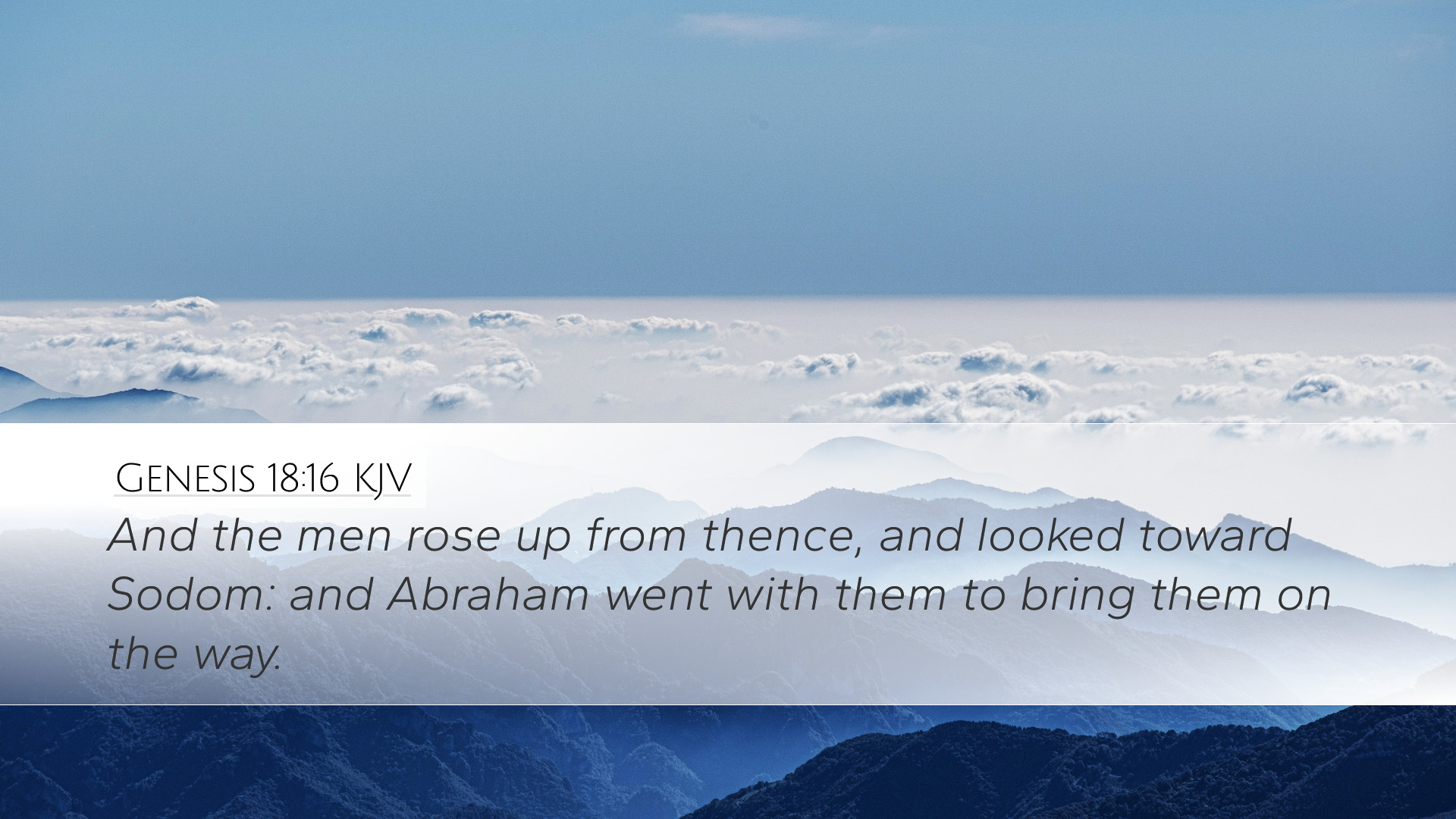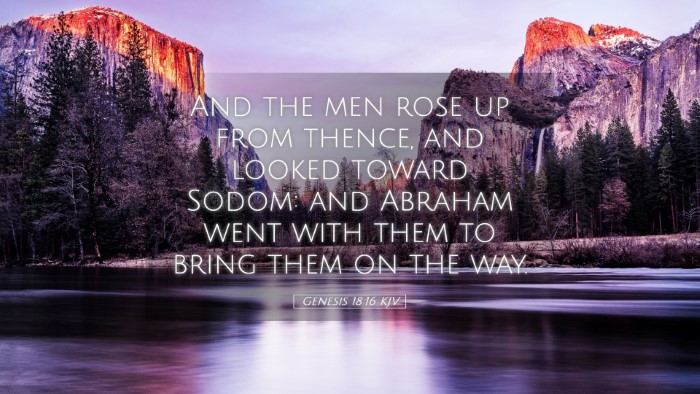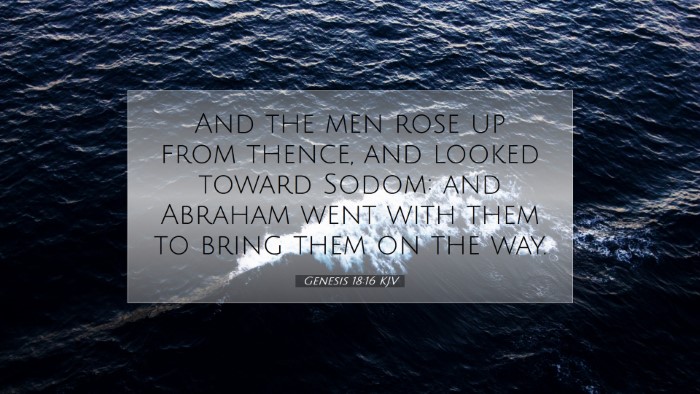Insights and Commentary
1. The Role of Abraham: Matthew Henry points out that Abraham's actions reveal a model of hospitality and concern for others. His intention to accompany the visitors demonstrates a heart inclined toward serving and respecting divine messengers. This act reflects the larger pastoral call to shepherd one's communities with attention and care.
2. Divine Revelation: Albert Barnes emphasizes that the impending journey toward Sodom signifies a divine revelation of judgment. The men, soon identified as angels and bearers of God's message, draw near to Sodom not merely to observe but to deliver the news of judgment. Their movement stands as a representation of God's watchful sovereignty and the seriousness of sin.
3. The Weight of Judgment: Adam Clarke notes that the decision to come down to Sodom and Gomorrah was due to the great outcry against these cities. The text encourages a serious view of sin, highlighting that divine judgment is not arbitrary but rather a response to the accumulated iniquities of the people. Such themes remind current readers of the significance of ethical living, reinforcing God's commitment to justice.
4. The Intercessory Heart of Abraham: As the narrative unfolds, it hints at Abraham's forthcoming intercession for Sodom (Genesis 18:23-33). This reflects his gentle yet firm pursuit of righteousness and mercy. Insightfully, Henry notes that Abraham's concern is not merely for the righteous but for the wicked as well, showcasing the inclusivity of God's mercy. It calls pastors and theologians to advocate for not only the church community but those outside its walls.
5. The Journey Toward Judgment: The phrase "looked toward Sodom" carries significant weight. Henry suggests that this reflects both physicality and spiritual insight—seeing not just with the eyes but with the heart. The angels’ gaze draws attention to human depravity, representing God's scrutiny of human actions. For scholars and students, the act of "looking" becomes a powerful metaphor for God's omniscience in human affairs.
Practical Applications
- Hospitality: Abraham's hospitality should inspire both individuals and church communities to cultivate a welcoming environment, as God often reveals Himself through interactions with others.
- Intercession: Every pastor is called to intercede for their communities, engaging in earnest prayer for those within and beyond the church, much like Abraham did for Sodom.
- The Nature of Judgment: This passage helps frame a biblical understanding of divine judgment, reminding us to reflect on sin's grave implications while seeking God's mercy for a broken world.
Theological Implications
Understanding God's Nature: The portrayal of God in this passage raises questions about justice and mercy. God's decision to investigate Sodom's sins before judgment underscores His fairness and righteousness. It impels theological reflection on how God's attributes coexist in a fallen world, and how they manifest in human history.
The Covenant Relationship: Abraham's intercessory role ties back to the concept of covenant. This relationship is foundational to biblical theology, showing how God's plans involve mediators who advocate for others. It sheds light on Christ’s intercessory work for humanity, making it a rich terrain for theological exploration.
Conclusion
Genesis 18:16 serves as a significant passage illustrating God's justice alongside His mercy through Abraham's example of hospitality and intercession. For pastors, students, and theologians, the themes interwoven in this verse compel reflection on the nature of divine judgment, the call to intercede for others, and the challenge of embodying Christ's love in a world steeped in sin.


